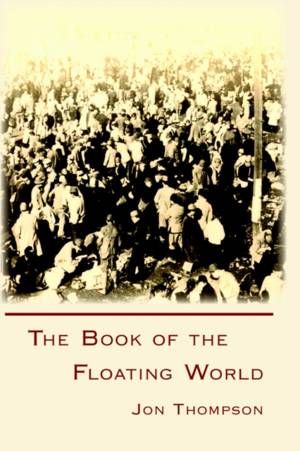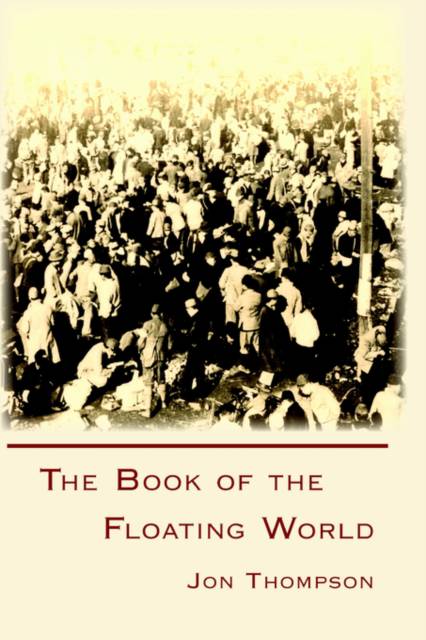
- Afhalen na 1 uur in een winkel met voorraad
- Gratis thuislevering in België vanaf € 30
- Ruim aanbod met 7 miljoen producten
- Afhalen na 1 uur in een winkel met voorraad
- Gratis thuislevering in België vanaf € 30
- Ruim aanbod met 7 miljoen producten
Zoeken
Omschrijving
Description Loosely based upon photographs of Occupied Japan, The Book of the Floating World ranges across a war-ravaged landscape, from a shattered Tokyo to scenes of a depleted countryside, with a close examination of the lives constructed out of that ruin. The Book of the Floating World explores the photographed moment-and poetry-as a peculiar and arresting instance of witness. Threaded throughout this collection is a set of interrelated meditations upon history, violence, war, memory, and art itself. What Others Have Said The poems, like their photographs, begin with still objects, with ourselves outside, looking in through time and culture. Suddenly the scenes come alive and we see a surprising compassion and beauty rise up. Each poem holds startling links between the floating samsaric world and a calm inquirer. We are looking at a by-gone Japan; we are looking at our current selves. -John Balaban, author of Locusts at the Edge of Summer: New and Selected Poems and Spring Essence If history is the patient work of interpreting those records of the dead that are left to us, Jon Thompson's searching poems are genuinely historical-acts of listening and looking with a complex, and empathetic, attention. These poems, with their grave cadences and moral clarity, in the end counter the blinding white light of disaster that suffuses them." -Susan Stewart, author of Columbarium and Poetry and the Fate of the Senses In The Book of the Floating World, the poet imagines his way into the past, constructing his dead father's experience of occupation Japan, and at the same time reflecting eloquently on the fallibility of such an endeavor. With his only evidence a group of photographs taken by his father, Thompson moves beyond those particular images to summon up vivid fragments of scenes cradled in the narrator's subtle, intelligent consciousness. The poems are elegant, elegiac meditations on the nature of personal history and mortality. In the book as a whole, the continuous and arresting conjunctions of past and present give The Book of the Floating World a quality of timelessness. -Angela Davis-Gardner, author of the novels Felice and Forms of Shelter Part moral memoir, part imagined life of the father, part imagined history, part solid history, this unusual combination of verbal and visual-of the then seen from the perspective of now-makes a rare and interesting book. -Betty Adcock, author of The Difficult Wheel and Intervale About the Author Jon Thompson is an associate professor of English at North Carolina State University, where he teaches courses in twentieth century literature. In addition to his publications in poetry, he has published Fiction, Crime and Empire (University of Illinois Press, 1993) and is the author of the forthcoming book, After Paradise: Essays on the Fate of American Writing (Salt Publishing). He also edits Free Verse: A Journal of Contemporary Poetry & Poetics and is the editor of Parlor Press's new poetry series, Free Verse Editions.
Specificaties
Betrokkenen
- Auteur(s):
- Uitgeverij:
Inhoud
- Aantal bladzijden:
- 108
- Taal:
- Engels
Eigenschappen
- Productcode (EAN):
- 9781932559279
- Verschijningsdatum:
- 31/07/2004
- Uitvoering:
- Hardcover
- Formaat:
- Ongenaaid / garenloos gebonden
- Afmetingen:
- 152 mm x 229 mm
- Gewicht:
- 318 g

Alleen bij Standaard Boekhandel
+ 77 punten op je klantenkaart van Standaard Boekhandel
Beoordelingen
We publiceren alleen reviews die voldoen aan de voorwaarden voor reviews. Bekijk onze voorwaarden voor reviews.











